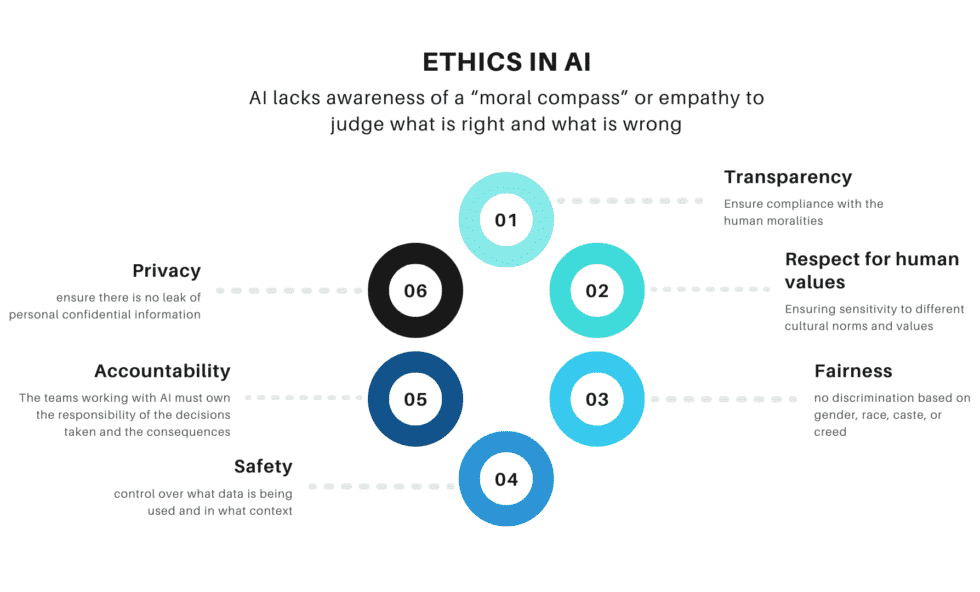Artificial Intelligence (AI) can innovate and build almost anything. With the advancements in technology, we can expect AI to make machines with learning and decision-making abilities. However, what it lacks is the awareness of a “moral compass” or empathy to judge what is right and what is wrong. Below are some elements of ethics which designers and developers of AI can implement to mitigate biases within the systems and instill a sense of responsibility among the people who work with AI.

Transparency
The development of every AI algorithm or AI-powered equipment must be transparent and include a complete explanation, purpose, and justification for its development. These disclosures are essential to monitoring the technology’s outcome to ensure its compliance with the human moralities. The design should be in a way that humans can easily understand, perceive, and detect its decision-making process.
Respect for human values
It is based on the principle that every innovation by AI should respect human values and lead to the overall growth of individuals and communities. Extreme care is called for ensuring sensitivity to different cultural norms and values.
Fairness
It is vital to promote a workplace of equality with no discrimination based on gender, race, caste, or creed. Embracing team members from different cultural groups can minimize bias and promote inclusiveness.
Safety
This refers to both the wellbeing of humans and the safety of the users’ data. It is crucial to identify risks and work towards finding resolutions to mitigate them. Employing security practices like encryption and empowering users with the control over what data is being used and in what context can protect and preserve the users’ right over the data.
Accountability
The teams working with AI must own the responsibility of the decisions taken and the consequences. Decision-making processes must be reviewable, especially in cases where AI is working with sensitive, confidential data like personal health information, identifiable data, biometric data, national security information, or intellectual property.
Privacy
The privacy of the users should be a priority with any AI work-process. It is necessary to seek consent from the users to use and store their data. Utmost care needs to be taken to ensure there is no leak of personal confidential information.
Thus, to sum up, ethics form the foundation of any innovation, and AI is no exception. By adopting the ethical standards discussed above, the designers and developers working with AI solutions contribute to a safer technology-driven world with a firm root in human values.




